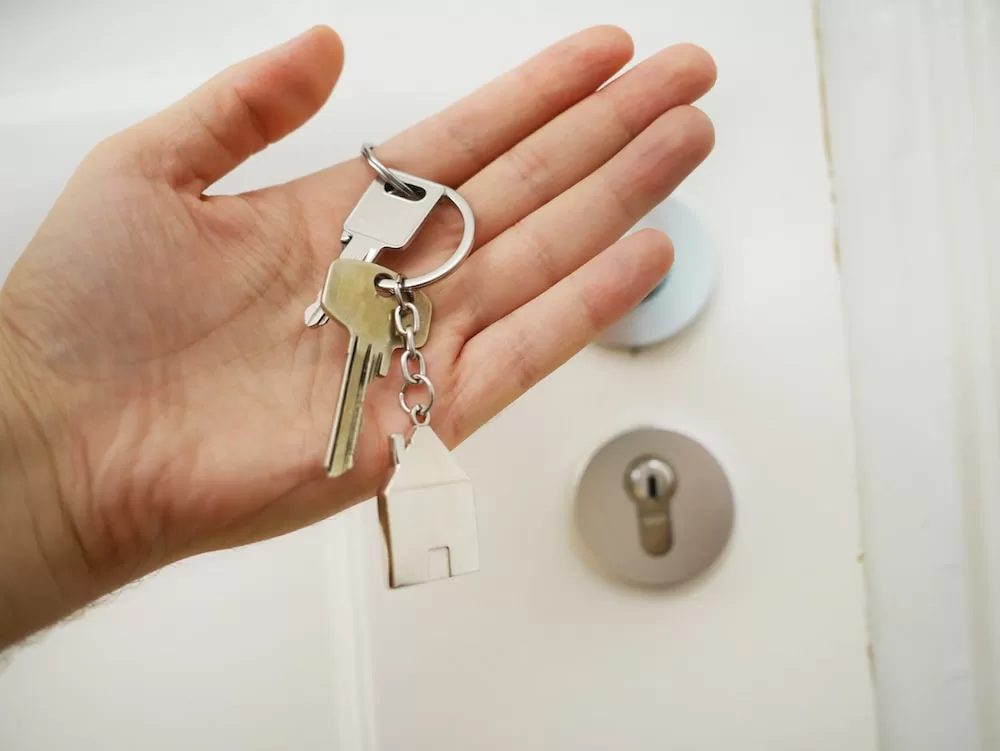The Essential Moving Home Checklist – 22 Amazing Tips
Moving home is the start of an exciting new chapter, but also requires thorough planning and organisation. Anyone who has even had a quick glance at the property market over the last couple of years will be well aware that buying or selling a home hasn’t exactly been easy. Prices have soared, crashed, and soared again, and there have been many more serious issues to worry about in the meantime. It’s really important that you look for ways to make things easier for yourself as well as address any potential headaches nice and early.
An extensive checklist covering every step simplifies the process and reduces stress. From selecting removals to redirecting mail, these key action items ensure everything goes smoothly on moving day and as you settle into your new abode.
The Essential Moving Home Checklist – 22 Amazing Tips
Choose Your Removal Company Wisely
Selecting a trusted, reputable removal company tops the checklist. Compare several firms based on service offerings, experience, reviews, insurance coverage, and licencing. Obtain in-home estimates detailing costs, timelines, packing services, storage options, and specialised movers for pianos, art, etc. if needed. Confirm details like parking access and stairs. Reputable firms offer reassurance during a hectic time. Remember that you’re not just trusting them do to their job, you’re also trusting them with your most treasured possessions.
Sort And Purge Thoroughly Before Packing
Those of us who could be politely described as hoarders will know how important this step is before trying to arrange a relocation. Use the move as motivation to purge clutter from every room. Be ruthless. Selling, donating, recycling, or binning items you have not used in years frees up space and lightens your load. Assigning a room or area of the house to sort through daily keeps the process manageable versus tackling everything at once.
Create an inventory of possessions to cross-check later and estimate movers’ needs. Clear the clutter for a fresh start. There are always going to be a few things that you realise that you didn’t need to bring with you, but it’ll make things a lot easier if you can identify them before you move.
Request Time Off For Moving Tasks
One of the most important things to remember is that moving to a new home is one of the most stressful things that you can do. Housing has a massive impact on your mental health. You are picking up your whole life and putting it somewhere else, and it’s going to be several times tougher if you’re moving with kids. It’s so important that you make sure that you’re giving yourself and your partner the right amount of time and space to take care of yourself during this process, so it’s time for some days off.
Alert your workplace that you will need to take time off for appointments, packing, sorting, and moving days. Schedule this well in advance to coordinate with management. Moving during off-peak work times helps. Having dedicated weekdays for essential moving tasks reduces weekend stress. Make contingencies if extra days are needed for unforeseen issues. Proper planning prevents work disruptions.
Collect Moving Supplies Over Time
Once you know that you’re going to move, it’s important to start thinking about the practicalities nice and early. Packing materials can often be forgotten when there are so many other things to worry about. Gather sturdy cardboard boxes and packing materials like bubble wrap and tissue in the months before moving rather than all at once. Check that boxes close properly and reinforce any weak spots with tape. Mark contents clearly on all sides. DIY packing takes time, so start accumulating supplies early. Call in reinforcements to help as needed. Proper packing prevents damaged belongings.
Create A Moving Binder With Key Info
Maintain a master moving binder containing critical information like quotes, inventories, truck reservations and maps. Include all contact details for utilities, banks, schools, vets, and other service providers requiring address changes. Having everything neatly organised in one spot prevents frantic searching stress on moving days. Update the binder as needed over time.
Plan Meals, Snacks and Drinks
Amid moving stress, don’t forget nutrition. Stock up on quick but healthy snacks and non-perishable foods to power you through demanding days. Make granola bars, sandwiches, or salads ahead to grab on the go. Keep everyone hydrated with plenty of water throughout the day (maybe some juice boxes for the kids too!). Meal planning ensures you don’t burn out running on empty. Eat well to keep your energy and spirits up.
Update Important Personal Documents
It’s vital to stay on top of any change of address info. Make sure essential identification and records like your driver’s license, passports, insurance policies, tax IDs, and medical records reflect your new address. Submit a change of address form to employers and government agencies. Update details with your bank, credit cards, pension providers, and any other financial institutions. Having key personal documents up to date prevents issues accessing services.
Check The Boiler In Your New Property
An important but often overlooked item on the moving home checklist is verifying the boiler works properly to provide heating and hot water. Before move-in day:
- Inspect boiler and radiators for leaks, cracks or rust.
- Confirm the pressure gauge is at the right level. Top up water if low.
- Ask when the pilot was last lit if a gas boiler and relight if needed.
- Verify the boiler ignites and heats up radiators adequately.
- Test hot water temp. Adjust thermostats if needed.
- Ensure radiator valves open and close properly.
- Check for recent service records and any repairs required.
Identifying boiler issues early provides lead time for repairs before move-in. This avoids getting stuck in a cold home. Have a technician service the boiler if uncertain. Don’t take boiler function for granted. You might find yourself in a position where you either need to replace an outdated boiler, or you’d buy a new one to give yourself more peace of mind and energy efficiency. A lot of people prefer to go with a combi boiler because it gives you reliable hot water more quickly.
However, there are a lot of different boilers out there and it can be difficult to know what you should be looking for. Boiler Central’s list of the best combi boilers breaks down the top options on the market. Visit their website to learn more and buy a boiler at a price that’s fixed and fair.
Rearrange Heavy Furniture First
Have removal professionals handle heavy, awkward items like sofas, beds, pianos, and appliances first. Disassembling and reassembling bulky furniture requires skill. Let them position pieces where you want them in the new home too. Handling heavy lifting means less strain on you. Finish by moving lighter boxes and bags yourself. Smart staging makes movements efficient.
Clean And Photograph Old Home Before Leaving
To get your security deposit back, meticulously clean your old rental or owned home before moving out. Follow lease guidelines and take photos proving any existing damage was not your fault. A fresh coat of paint can work wonders too. Thoroughly checking for belongings left behind prevents losses. Leave the property pristine to get your deposit returned.
Check For Any Last-Minute Repairs Needed
In the final walk-through of your old home, look for any damage or issues needing repair before handing over the keys. Fix loose doorknobs, cracked tiles, appliance malfunctions, dripping faucets and similar maintenance needs proactively. Completing repairs by yourself or hiring assistance protects your security deposit and avoids burdens on the next residents. Leave the home in tip-top shape.
Confirm Move-In Timing With New Property Owners
Double-check the exact move-in procedures and timeline with the owners of your new property several weeks and again shortly before moving. Clarify when keys are handed over, where to pick them up, and the point of contact. Reconfirm policies on changing locks, parking, renovations, maintenance requests and emergencies. Knowing what to expect on arrival day avoids hassles.
Install New Home Security Measures
Moving presents an opportunity to beef up security measures to protect your family and belongings in the new home. Install any security system hardware before moving valuables inside. Change the locks right away as well. Ensure functioning smoke and carbon monoxide detectors are in place following local code. Secure peace of mind through proper security steps before moving in.
Unpack Daily Essentials First
When unpacking, sort boxes by frequently used essentials versus items used less often. Unload essentials like toiletries, medications, phone chargers, towels, and pyjamas first so they are accessible immediately. Make beds with basic linens to enable sleeping there the first night. Setting up daily necessities allows functioning comfortably while tackling ongoing unpacking gradually.
Transfer Medical, Dental and Pet Records
To set up ongoing care in your new neighbourhood, obtain copies of medical and dental records for household members and pets. Make appointments with new providers after move-in. It’s not been easy to register with dentists recently, so it’s best to get a head-start on this if you can. Ask doctors to send any required immunisation records to schools or government agencies. Proactively transferring health records keeps vital care uninterrupted.
Have A Floor Plan For Furniture
Moving furniture around inevitably eats up time after the initial placement by movers. Make a rough floor plan for where all larger items should be situated beforehand to minimise repeat heavy lifting. Have your reasoning clear, like the best television viewing angles or ideal bedroom furniture alignments. A well-thought-out floor plan creates an efficient and logical layout.
Update Your Address Everywhere
To prevent missed mail, promptly update your address with the post office, banks, investment companies, insurers, credit card issuers, subscription services, government offices, alumni networks, clubs, and any other contacts. Having mail forwarded buys time but updating details directly ensures no interruptions. Carry proof of your new address until all records reflect the change. Don’t lose touch with key contacts.
Transfer Utilities and Cancel Any Unneeded Services
Contact all your utility companies and service providers to cancel or transfer services at your old residence and start new accounts for the new property. Build in a buffer between disconnection and reconnection dates. Sending confirmation emails helps ensure correct addresses and start dates. Prices for streaming services have been going up so this might be a good time to think about trimming what you’re using. Cancel any subscription services not transferring. Managing utilities early avoids hassles.
Consider Staggering Room Painting
Painting the entire interior before moving everything in can feel daunting. As an option, paint key rooms and prime less critical areas first. Then you can move furnished spaces in, unpack, and paint additional rooms over time. Breaking up painting prevents rushed, sloppy work. Just be sure to finish commonly used rooms like kitchens promptly to enjoy the fresh feel.
Hang Artwork And Photos
Personalise your new abode quickly by displaying treasured artwork, photos, and mirrors as soon as possible. Arrange them thoughtfully in entryways, hallways, and commonly used rooms first. Visually appealing furnishings make unfamiliar spaces feel like home fast. Just be sure all hangings are properly secured and will not fall. Surround yourself with special pieces you love.
Meet The Neighbours
Learning the lay of your new neighbourhood goes beyond unpacking. Take time early on to introduce yourself to neighbours on all sides and across the street. Bringing baked goods or small housewarming gifts breaks the ice fast. Get insight from longer-term residents on topics like bin collection, parking, community events and more. Building neighbourly relationships increases comfort in your new community.
Explore Local Amenities and Services
Venturing out into your new locale, scout services and amenities to integrate into your routine like supermarkets, cafes, parks, gyms, banks, libraries, and recreation centres. Look for any retailers or speciality vendors relevant to your lifestyle too. Knowing what is conveniently available nearby makes settling in smoother. It pays to become familiar with the area quickly.
Moving generates plenty of stress but careful preparation ensures your relocation goes smoothly from start to finish. With everything on the checklist crossed off well in advance, you can enjoy a calm, organised move, and an exciting transition into your new home.












